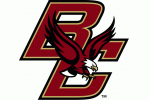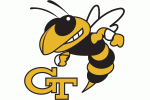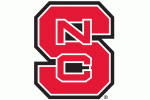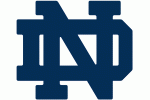Phelps will be signing copies of his book at 1 p.m. tomorrow at the Mishawaka Barnes & Noble.

Legendary Notre Dame Fighting Irish basketball coach Digger Phelps will be signing copies of his newest book, “Father Ted Hesburgh: He Coached Me,” at 1 p.m. Saturday at the Barnes & Noble, 6501 N. Grape Road, Mishawaka (map).
This except from the book, which was co-written by Tim Bourret ’77, is printed with the permission of Triumph Books. For more information and to order a copy, please visit www.triumphbooks.com/FatherTed.
This title can be found anywhere books are sold, including the Hammes Bookstore, Barnes & Noble, Amazon, IndieBound, Kobo, and TriumphBooks.com.
CHAPTER 2: A DISCIPLE OF FATHER HESBURGH
In 1996, I saw Father Hesburgh at a function at Notre Dame. We had talked a few years earlier, just after I left the White House where I had worked for President George H.W. Bush (1992-93). During that two-hour visit, we spoke about subjects that ranged from world hunger to civil rights to the future of college athletics.
At this function in 1996, he asked me, “So, what have you been doing?” I told him I had been working for ESPN and I had started a mentoring program in South Bend public schools. He looked at me and said, “No, what have you really been doing?”
I had heard the story of Jose Napoleon Duarte, a member of the Notre Dame Class of 1948 who had taken a course in social justice under Father Hesburgh when he was a student. He came to Notre Dame by train through Central America with his brother from El Salvador. In fact, when Duarte was a freshman, one of his first classes was on social justice with Father Hesburgh. He was in his first year as a Notre Dame professor.
“I nearly threw him out of class the first day,” Father Ted said. “He was speaking Spanish to his brother during class.” But Hesburgh found out that “Nappy” as he called him, could not speak much English and was having trouble understanding Father Ted. His brother was merely trying to interpret what he did not understand.
Fluent in Spanish, Hesburgh offered to meet with Duarte after class and give him lessons in English. That led to a strong bond between pupil and teacher, one that lasted 46 years. Duarte returned to El Salvador, where he was employed as an engineer. But his homeland was in a chaotic state in terms of the political climate.
In 1960 on a trip to Panama City for a Universal Notre Dame Night, Hesburgh and Duarte met. Hesburgh looked at him and asked, “Nappy, what are you doing?” Duarte told him he was a civil engineer in El Salvador. “It’s time for you to take your country and lead it out of that dictatorship and communism, and bring in democracy,” Father Hesburgh told him.
It was not an easy path to becoming the only Notre Dame graduate to serve as president of a country. Duarte founded the Christian Democratic Party and ran for President in 1972. It was a revolution that was well received by many. He was winning handily when the army stopped the count and declared its candidate the winner.
A few weeks later, Duarte supported a dissident military faction and it failed. Duarte was arrested, beaten and told he would be shot. After help from Hesburgh and others from the United States, he was allowed to leave the country and spent the next seven years in Venezuela.
A different regime came into power in 1979 and Duarte was allowed to return to his homeland. He was elected President in 1984 and served in that capacity until 1989. He was the first civilian to serve as president of El Salvador in half a century.
In 1985 Duarte came to Notre Dame to receive an honorary degree from Notre Dame at the May commencement. During his speech, he said he hoped to return home to El Salvador in the style of Notre Dame football legend George Gipp and score a victory for peace. There had been five years of civil war in his country.
“George is up there, with all the distinguished saints we have in heaven, and through him I want to invoke the help and protection of God,” said Duarte, who actually had a one day tryout with the Notre Dame team when he came to school.
Duarte died on Feb. 23, 1990 (just three days from the day on the calendar that Hesburgh died 25 years later). He was just 64. When he died, President George H.W. Bush said, “He was the father of Salvadoran democracy. He exhibited courage in building the foundation of democracy in El Salvador and the message of hope he brought to all of Central America.”
Hesburgh was greatly saddened at the passing of one of his first and more remarkable students. “He was a man who was honest in a situation where very few are all that honest,” Hesburgh was quoted as saying. “He gave all he had to bring out social justice in a country that was characterized by a culture of violence.”
So when Hesburgh asked me, “No, what are you really doing?” I thought of Duarte immediately.
I had a visit with Fr. Ted when I returned from the White House in 1993. We had discussed the educational crisis in this country and we talked about what it would take to improve the secondary school system. I told him how the schools not only needed better teachers, but the basic physical environment needed time, work and money. I could see that in the schools in South Bend.
My discussion with Father Ted sparked an idea to improve the infrastructure of the schools in South Bend. I thought if I could establish a blueprint for success here, other cities across the country could adopt it, and we would have an impact nationally.
Jimmy Carter’s Habitat for Humanity, which builds homes for the poor, gave me some ideas, as did the Christmas in April project, which involved hundreds of Notre Dame students who fix neighborhoods in South Bend during the spring.
In early 1997, I spoke to a Rotary Club luncheon in South Bend and challenged them to fix up the local schools and expand the afterschool programs. The after-school programs were just as important because most of the juvenile crimes are committed between 3 p.m. and 5 p.m. during the week.
Over time the corporate sector became involved. I got Sherwin Williams of Ohio to donate $20,000 worth of paint and brushes. I told local corporations in South Bend I was putting down $5,000 of my own money and challenged them to match it. We had an initial goal of $175,000, but reached $200,000 by the end of the project.
The media got involved—the news and the sports side. I had met Anne Thompson, a Notre Dame grad at NBC news, and she contacted the Today Show about the program. Jack Ford, who is today still one of the most respected sports journalists in the country, interviewed me on the morning of June 20, 1998.
That was quite a day. Over 700 volunteers showed up to revitalize Lincoln Grammar School in South Bend. When I saw those busloads of volunteers pull in, it gave me a great feeling. We accomplished a lot, and worked through the summer on the project.
There were a couple of articles in the local papers about the project and I sent them to Father Hesburgh, and to former president George H.W. Bush, a friend for 45 years. I still value their correspondence, which I have kept all these years.
Dear Digger,
Thanks ever so much for sending me that interesting information about Lincoln School and all that you are doing as a true “Point of Light.” I am so glad that you are still involved in helping students— but who’s surprised? Warmest regards, old friend. I miss our visits from the past.
Sincerely,
George
—-
Dear Digger,
I finally had a few free moments tonight to read all those wonderful articles you sent to me. I am very proud of what you are doing. I wish you all success in this endeavor, which could turn around the disastrous situation in most of our schools, especially in poor neighborhoods.
I hope it is helpful to know that both Father Ned and I are very proud of what you are doing and cheering loudly from the sidelines. The community needs leadership like this and you are really giving it. I know the effect will be outstanding. Keep up the good work.
Ever devotedly in Notre Dame,
Rev. Theodore M. Hesburgh, C. S. C.
President Emeritus, University of Notre Dame
—
It was one of the most rewarding projects of my career. And, Father Ted Hesburgh inspired it all.
















